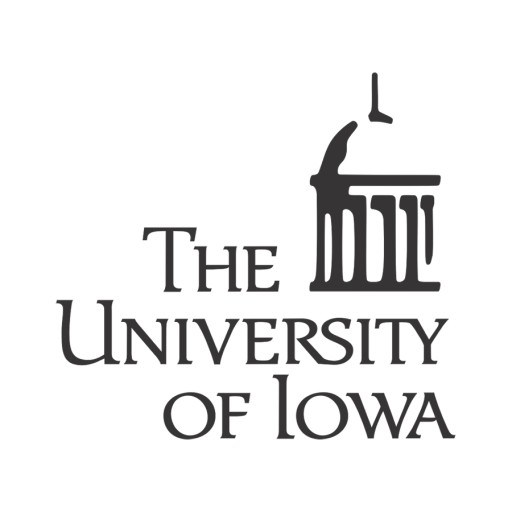Photos of university / #uiowa
The Bachelor of Science in Microbiology at the University of Iowa provides students with a comprehensive understanding of microorganisms and their vital roles in the environment, health, and industry. This rigorous program combines foundational courses in biology, chemistry, and mathematics with specialized microbiology coursework, leading to a deep knowledge of microbial structure, function, genetics, and ecology. Students will explore topics such as infectious diseases, immunology, virology, bacteriology, and mycology, gaining both theoretical insights and practical laboratory skills essential for careers in healthcare, research, biotechnology, pharmaceuticals, and environmental sciences. The program emphasizes experimental techniques, data analysis, and critical thinking to prepare students for graduate studies or entry into the workforce. With access to state-of-the-art labs and research opportunities, undergraduate students are encouraged to participate in faculty-led research projects that address real-world problems. Graduates of the Microbiology program will be well-equipped to pursue careers in clinical diagnostics, public health, food safety, and environmental conservation, or to continue their education through advanced degrees. The program also offers internships and collaborative projects with local industries and healthcare organizations, providing valuable hands-on experience. Students benefit from a supportive academic environment tailored to foster scientific inquiry, innovation, and professional development. By completing this program, graduates will possess a robust understanding of microbiological principles and practical skills necessary to contribute to advancements in health, industry, and scientific knowledge.
- Graduate Immunology and Human Disease
- Graduate Immunology
- Advanced Topics in Immunology
- Integrated Topics in Infectious Diseases
- Microscopy for Biomedical Research
- Advanced Microscopy for Biomedical Research
- Graduate Bacteria and Human Disease
- Graduate Microbial Physiology
- Graduate Research in Microbiology
- Graduate Student Research Seminar
- Graduate Animal Viruses and Human Disease
- Biology and Pathogenesis of Viruses
- Graduate Microbial Genetics
- Modular Graduate Bacteriology Courses
- Graduate Bacterial Diversity and the Human Microbiome
Requirements
- You must first submit the online application to the Graduate College and pay the $60 application fee by credit card ($100 for international applicants).
- Résumé or Curriculum Vitae
- Research Statement
- Personal Statement
- Three letters of recommendation
- A set of your unofficial academic records/transcripts uploaded on your Admissions Profile. If you are admitted, official transcripts will be required before your enrollment.
- Your official GRE scores from Educational Testing Service (the University's institutional code is 6681).
- International students may also be required to submit TOEFL, IELTS, or PTE scores to comply with the university's English Language Proficiency Requirements.
- Once recommended for admission, international students must send aFinancial Statement.
Students admitted to the PhD program receive a stipend and a health insurance allowance in addition to full payment of their tuition and mandatory fees.
The Bachelor of Science in Microbiology at the University of Iowa is a comprehensive undergraduate program designed to provide students with a strong foundation in the biological sciences, focusing on the study of microorganisms and their roles in various environments. This program prepares students for careers in research, healthcare, biotechnology, pharmaceuticals, and environmental sciences, as well as for graduate or professional schools. The curriculum offers a robust mix of coursework in microbiology, molecular biology, genetics, biochemistry, and immunology, complemented by laboratory experiences that enhance practical skills and scientific understanding. Students also have opportunities for independent research projects, often in collaboration with faculty members who are leading experts in their fields. The program emphasizes critical thinking, experimental design, data analysis, and effective communication of scientific findings. Students can choose from various electives and specialization tracks to tailor their education according to their career interests. The University of Iowa provides state-of-the-art facilities and resources, including well-equipped laboratories, research centers, and access to modern technology. The program also encourages participation in seminars, conferences, and professional organizations that foster networking and professional development. Graduates of the Microbiology program are well-equipped to pursue advanced degrees such as a Master's or Ph.D. in microbiology or related disciplines, or to enter the workforce directly in roles such as clinical microbiologists, laboratory technicians, research scientists, or regulatory specialists. Furthermore, the program covers important topics such as infectious diseases, microbial genetics, industrial microbiology, and ecological microbiology, reflecting the diverse applications and critical importance of microbes in health, industry, and the environment. The University of Iowa's strong connections with healthcare providers, research institutions, and industry partners offer students internship and employment opportunities that can be invaluable for career development. Overall, the Microbiology undergraduate program combines rigorous academic coursework with hands-on research, preparing students to contribute significantly to advancements in microbiological sciences and to address pressing global challenges related to health and the environment.



